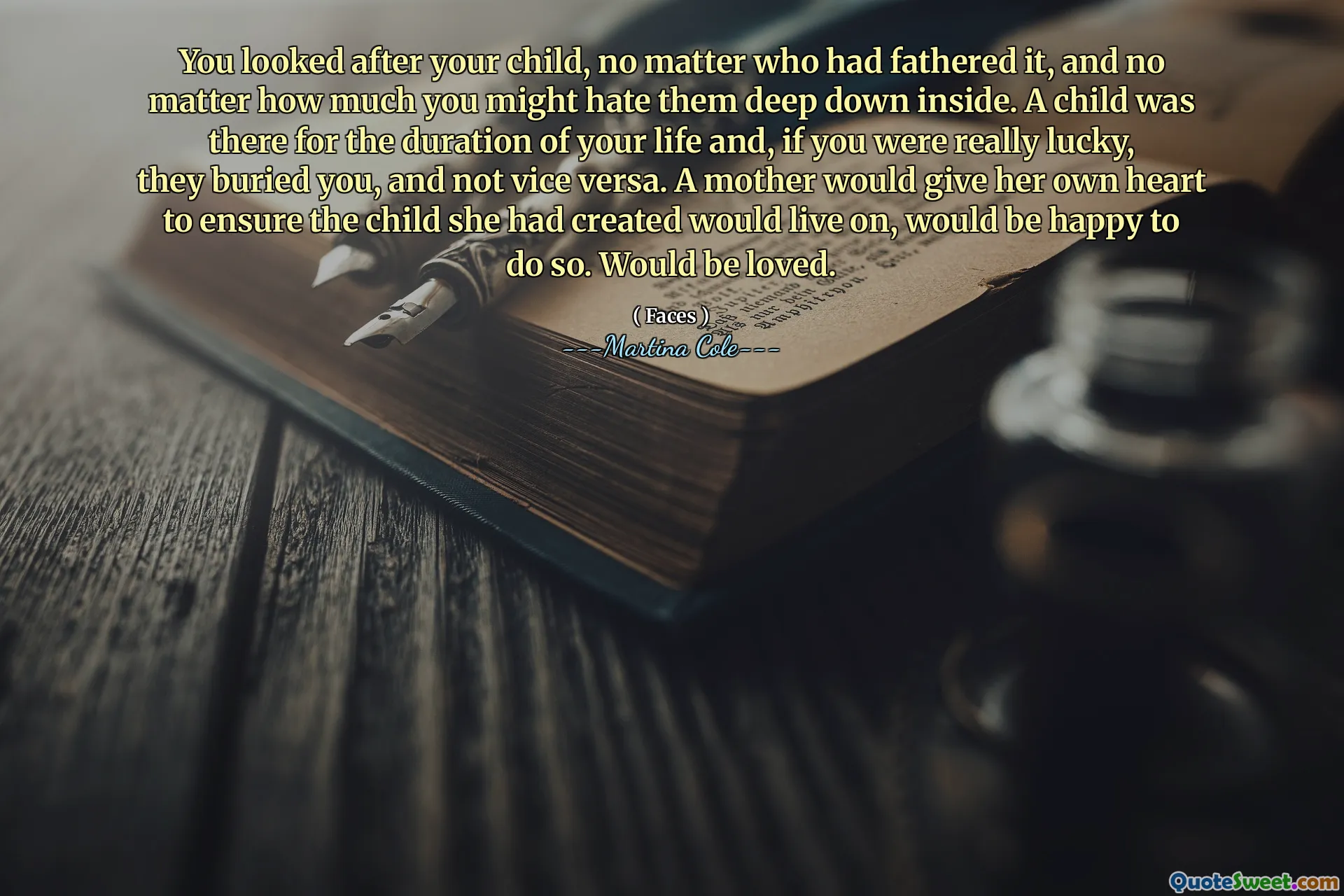
You looked after your child, no matter who had fathered it, and no matter how much you might hate them deep down inside. A child was there for the duration of your life and, if you were really lucky, they buried you, and not vice versa. A mother would give her own heart to ensure the child she had created would live on, would be happy to do so. Would be loved.
In Martina Cole's "Faces," the narrative delves into the profound bond between a mother and her child, emphasizing that a mother's unconditional love persists despite any animosity towards the child's father. This connection underscores the idea that a mother prioritizes her child's well-being, regardless of personal feelings, highlighting the innate duty to nurture and protect. The relationship is ultimately characterized by a lifetime of devotion, as she invests herself in the hopes and future of her offspring.
The passage reflects on the enduring nature of a mother’s love, suggesting that a child's presence is a lasting legacy that extends to the end of life. A mother embodies the selflessness needed to ensure her child's happiness and survival, essentially giving everything for that singular purpose. This deep emotional commitment illustrates how a mother’s dedication can shape a child's life, creating a bond that endures beyond her own existence.











